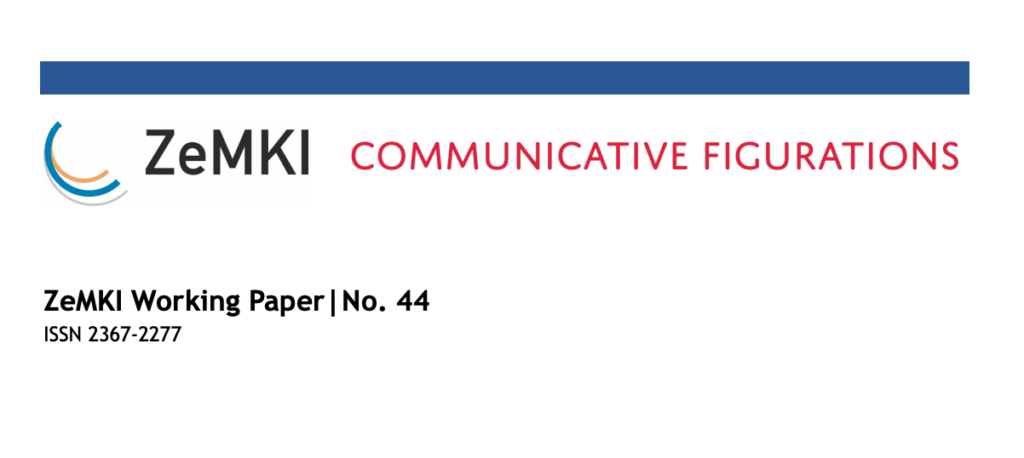
Nr. 44 Gaia Amadori: Studying the Datafied Home: The Potentials of Combining Mixed Methods, Constructivist Grounded Theory and Social Network Analysis
Over the last decade, the social, cultural, and political consequences of datafication have been addressed by a growing body of research. As highlighted by Flensburg and Lomborg (2021) in their review of datafication research, starting from 2015 an increasing number of studies addressed this topic, although mainly from a theoretical perspective. Indeed, the- oretical contributions make up over 50% of the overall body of works on datafication, while empirical and methodological publications represent only 25% and 15%. Further- more, 70% of empirically-oriented studies employ qualitative methods; conversely, only 9% and 16% adopt respectively a quantitative or mixed methods research design. In addition, the authors outlined how the meso perspective is the main nucleus of analysis (50%), fol- lowed by the macro (32%). Conversely only 14% focus on “a micro-level of everyday life” (Flensburg & Lomborg, 2021). In general, theoretical research is mostly macro-oriented, while empirical is organisational or user-centered.
About the author
Gaia Amadori
Gaia Amadori is PhD Candidate in “Sociology, Organizations, Cultures” in the Department of Communication at the Catholic University of the Sacred Heart of Milan (UCSC) and a research fellow of the Digital Humanities Lab (LDH) at Alta Scuola in Media, Comunicazione e Spettacolo (ALMED). She’s also a member of the European Communication Research and Education Association (ECREA), the International Communication Association (ICA), and the Association of Internet Researchers (AoIR). In 2022, she was visiting researcher at ZeMKI, Centre for Media, Communication and Information Research, University of Bremen. Based on the DataChildFutures project, her dissertation aims to study digital media domestication processes within families with young chil- dren (0-8 y.o) adopting communicative figurations as a theoretical framework. The aim is to focus the impact of data relations on the household’s power structure through a mixed-methods research design that leverages network techniques. Her research interests concern media sociology, game studies, digital methods, and social network analysis.

